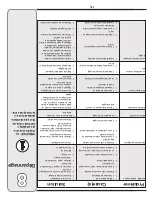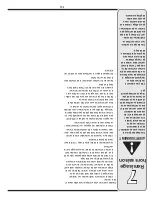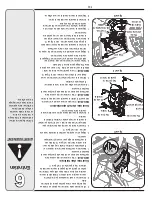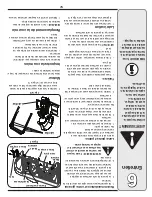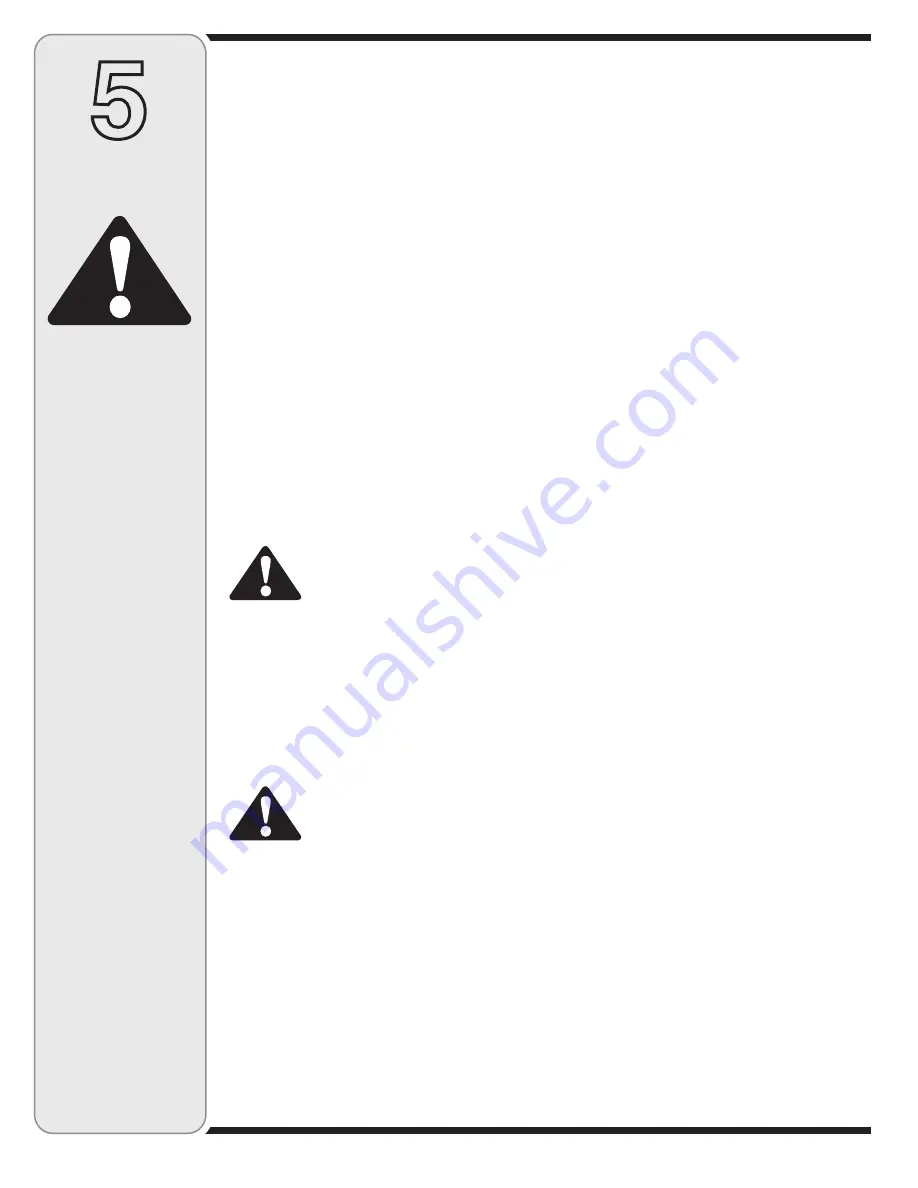
10
5
Operation
WARNING
To Stop Engine
• Run engine for a few minutes before stopping to help
dry off any moisture on the engine.
• To help prevent possible freeze-up of starter,
proceed as follows.
Optional Electric Starter:
Connect power cord to
switch box on engine, then to 120 volt AC receptacle.
With the engine running, push starter button and spin
the starter for several seconds. The unusual sound
made by spinning the starter will not harm engine or
starter. Disconnect the power cord from receptacle first,
and then from switch box.
Recoil Starter:
With engine running, pull starter rope
with a rapid, continuous full arm stroke three or four
times. Pulling the starter rope will produce a loud clatter-
ing sound, which is not harmful to the engine or starter.
To stop engine, remove the ignition key. Do not turn
key. Disconnect the spark plug wire from the spark
plug to prevent unintended starting while equipment is
unattended.
NOTE
: Do not lose ignition key. Keep it in a safe place.
Engine will not start without the ignition key.
Wipe all snow and moisture from the carburetor cover in
the area of the control levers. Also, move control levers
back and forth several times.
WARNING: The temperature of muffler
and the surrounding areas may
exceed 150º F. Avoid these areas
Auger Control Test
IMPORTANT:
Perform the following test before operat-
ing the snow thrower for the first time and at the start of
each season.
Check the adjustment of the auger control as follows:
1. When the auger control is released and in the
disengaged “up” position, the cable should have very
little slack, but should NOT be tight.
WARNING: Do not over-tighten the
cable. Over-tightening may prevent
the auger from disengaging and
compromise the safety of the snow
thrower.
2. In a well-ventilated area, start the snow thrower
engine as instructed earlier in this section under the
heading Starting Engine. Make sure the throttle is
set in the FAST position.
3. While standing in the operator’s position (behind the
snow thrower) engage the auger.
4. Allow the auger to remain engaged for approximately
ten (10) seconds before releasing the auger control.
Repeat this several times.
5. With the engine running in the FAST position and the
auger control in the disengaged “up” position, walk to
the front of the machine.
6. Confirm that the auger has completely stopped
rotating and shows NO signs of motion.
IMPORTANT:
If the auger shows ANY signs of rotating,
immediately return to the operator’s position and shut
off the engine. Wait for all moving parts to stop before
readjusting the auger control cable as shown in the
“Setup And Adjustment” section on page 7.
Operating The Snowthrower
NOTE:
Allow the engine to warm up for a few minutes
as the engine will not develop full power until it reaches
operating temperature.
• Adjust the discharge chute as desired. Do not throw
snow toward a building as hidden objects could be
discharged with enough force to cause damage.
• Start the engine as instructed previously.
• Making certain no bystanders or obstacles are in front
of the unit, squeeze the auger control bail completely
against the upper handle to fully engage the augers.
Release the auger control bail and the augers will
stop.
• While the auger control handle is engaged, squeeze
the drive control bail completely against the upper
handle to engage the wheels. Release the drive
control bail and the wheels will stop.
• As the snowthrower starts to move, maintain a firm
hold on the handle, and guide the snowthrower along
the path to be cleared.
• Release the bails to stop the snowthrowing action and
forward motion.
NOTE
: Your unit is equipped with a clutch in the transmis-
sion. If the wheels stop turning while trying to discharge
large volumes of snow, immediately disengage the drive
control bail and allow the rotating augers to discharge
snow from the housing. Continue operation reducing
clearing width.
The operation of
any snow thrower
can result in foreign
objects being thrown
into the eyes, which
can damage your
eyes severely. Always
wear safety glasses
while operating the
snow thrower, or
while performing
any adjustments or
repairs on it.
Be sure no one other
than the operator is
standing near the
snow thrower while
starting engine or
operating snow
thrower. Never run
engine indoors or in
enclosed, poorly ven-
tilated areas. Engine
exhaust contains
carbon monoxide, an
odorless and deadly
gas. Keep hands,
feet, hair and loose
clothing away from
any moving parts
on engine and snow
thrower.






















